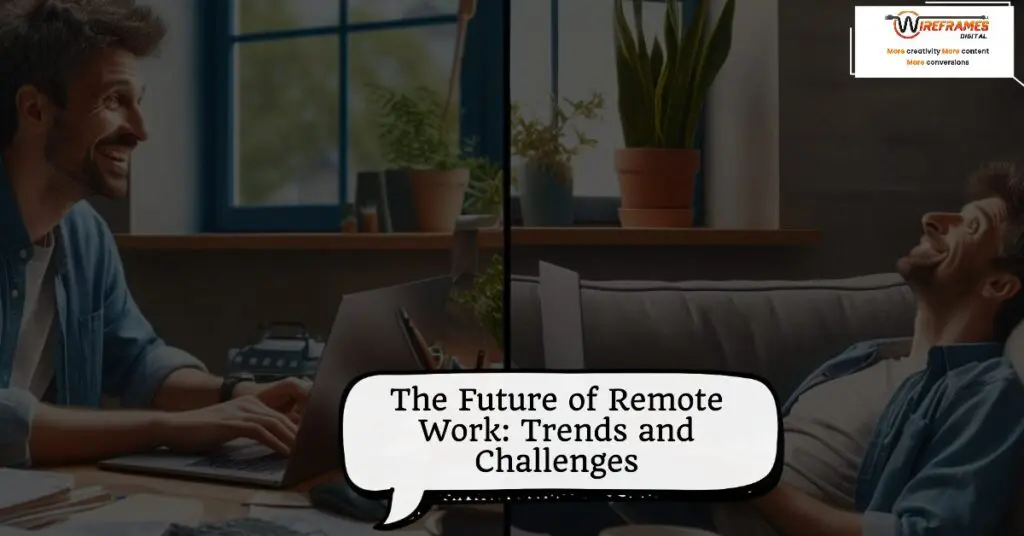In our current era, marked by the swift pace of technological and social transformations, the concept of remote work has swiftly shifted from a mere convenience to a core necessity for both organizations and their employees worldwide. As we continue to ride the wave of the digital revolution, the landscape of work is being redefined, ushering in both exciting opportunities and significant challenges that demand our attention and understanding.
This article delves into the transformative trajectory of remote work, exploring the latest trends that are shaping its future and the hurdles that accompany these developments. Whether you’re a remote worker, a digital nomad, or an HR professional navigating these changes, read on for insights that will illuminate the path ahead in the remote work environment.
The Core of Remote Work
Remote work, essentially, refers to performing professional tasks from a location that isn’t a conventional office setting. This straightforward idea is a catalyst for profound changes in our perceptions of work and life. The question of why the future of remote work is critical at this juncture is pertinent. We stand at a crucial juncture, with remote work not just becoming mainstream but poised to evolve into a completely new work paradigm.
Emerging Remote Work Trends
- Adapting to Flexibility: A key trend transforming remote work is the embrace of flexible schedules and the ability to work from anywhere. Organizations are increasingly recognizing the value of granting their employees autonomy, signifying a shift towards a more employee-centric approach.
- Employee Well-being Takes Center Stage: The remote work model promotes a work-life balance that was previously hard to achieve. As a response, companies are investing more in initiatives that focus on the well-being of their employees, acknowledging the personal side that comes with the territory of remote work.
- The Virtual Office Concept: With teams spread across the globe, the rise of remote collaboration tools like video conferencing, project management software, and cloud-based solutions has been unprecedented. These tools are now the lifelines of remote work, facilitating innovative ways for teams to interact and complete projects.
Challenges Along the Path
Remote work, despite its many benefits, is accompanied by its own set of challenges that need acknowledgment and strategic solutions. Some notable challenges include feelings of isolation, hurdles in communication, difficulty in maintaining work-life boundaries, and the potential for misinterpretation due to the lack of face-to-face interactions.
However, with the growing prevalence of remote work, solutions are emerging that tackle these challenges directly. The focus on strengthening virtual communities and enhancing communication strategies is becoming more prominent.
For instance, consider the shift towards regular virtual meetups and the establishment of online water cooler spaces that simulate the casual office interactions missed by remote workers. These initiatives not only help in mitigating feelings of isolation but also foster a sense of belonging and community among remote teams.
Anticipating Future Remote Work Trends
The landscape of remote work is dotted with imminent changes that promise to redefine conventional work models.
- The Advent of the Metaverse for Collaboration: The development of virtual reality spaces, or the metaverse, holds potential for creating life-like, shared workspaces. This could dramatically transform how remote collaboration is perceived and executed.
- Elevating Cybersecurity Measures: With the increase in remote work, the emphasis on cybersecurity and protecting sensitive data is more crucial than ever. The implementation of secure remote access and stringent data privacy measures is expected to rise.
- Flourishing Freelance Economy: The shift towards remote work aligns with the burgeoning freelance economy. More professionals are likely to choose freelance paths, valuing autonomy and diversity in their work.
Crafting Strategies to Overcome Remote Work Challenges
Addressing the challenges of remote work demands a proactive, multi-faceted approach that combines technology, thoughtful policy-making, and a deep understanding of human needs.
- Developing Robust Communication Channels: Establishing clear, inclusive communication protocols is essential for keeping remote teams cohesive and collaborative, despite geographical distances.
- Focusing on Mental Health: To tackle potential isolation and burnout, organizations must emphasize mental health initiatives, fostering a culture of support and providing resources for emotional wellness.
- Promoting Continuous Skill Development: As the remote work environment evolves, encouraging lifelong learning and skill enhancement ensures that employees remain engaged and competitive.
Conclusion
The revolution in remote work opens vast opportunities and complex challenges. By proactively understanding and preparing for its trajectory, individuals and businesses can navigate the future confidently. Remote work not only offers the freedom of choice in work locations but also presents an opportunity to redefine our work cultures and strategies. As we embrace these changes, it’s imperative to view the future of remote work not merely as a shift in location but as a significant transformation in how we work, collaborate, and balance our personal and professional lives.
In navigating the vastness of remote work’s future, it is not a question of “if” remote work will continue to shape our professional landscapes, but “how” we can collectively ensure it molds into a fulfilling and productive experience for everyone involved.
















